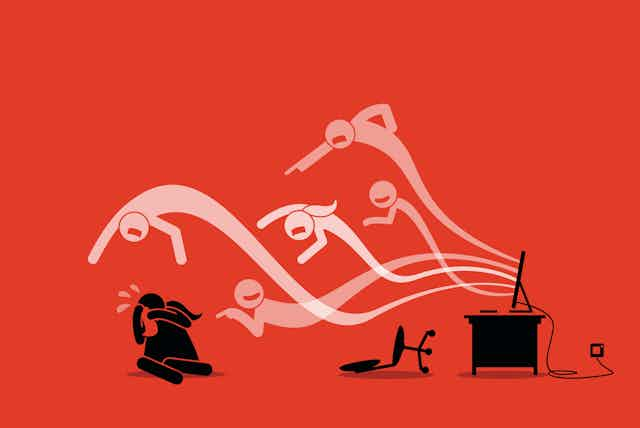A female candidate slapped after a public debate, another whose home was vandalised, a man trespassed for entering the same house, shouts and jeers directed at another woman candidate for using te reo Māori – the 2023 election has certainly had its uglier moments.
But reports of abuse, threats and violence on the campaign trail shouldn’t surprise anyone. Over the past five years, female politicians have consistently spoken about the often violent and sexist harassment they receive online.
A recent United Nations study examining the experiences of female journalists established a clear link between online and real-world violence, particularly stalking. Another study found female politicians and journalists in Britain and the United States are abused on Twitter (now X) every 30 seconds.
This is backed up by local politicians’ experiences. Green Party MPs Marama Davidson and Golriz Ghahraman have both spoken about the serious abuse they receive online. Ghahraman needed a security escort following a series of death threats.
In 2021, Christchurch city councillor Sara Templeton and other female leaders, including mayor Lianne Dalziel and Labour MPs Sarah Pallet and Megan Woods, were subjected to a relentless campaign of online harassment and increasingly gendered abuse.
Similar experiences have been shared by National MPs Nicola Willis and Paula Bennett . Former prime minister Jacinda Ardern also had to tolerate high levels of online vitriol. What has happened during the election campaign is part of a clear trend.
Normalised gender-based violence
The often misogynistic nature of online abuse, from sexist name-calling to threats of rape and death, makes it a form of gender-based violence . And the New Zealand government has made international and domestic commitments to create a safe political environment for women.
But this would require the development of a concrete plan to address online violence – something most political parties have been largely silent about during the election campaign.
Read more: Online abuse could drive women out of political life – the time to act is now
And it’s not a new issue. The independent review into bullying and harassment in parliament was released in 2019. It found online harassment and abuse of MPs by members of the public, including sexist and violent threats, was increasingly common and even accepted as par for the course.
Since then, there have been significant improvements to combat workplace bullying, but essentially nothing has been done about online abuse.
This is especially concerning given the way violent online behaviour may embolden some people to act out such behaviours in real life.

A weak legal framework
That said, there are some rules governing online abuse. The current legal framework includes the Harmful Digital Communications Act, which was designed to address harmful online communication such as cyberbullying, harassment and threats. It established legal mechanisms for reporting and prosecuting harmful digital content.
But the law has two key weaknesses when it comes to gender-based violence.
Firstly, to prove a criminal offence, the harmful content must cause “serious emotional distress” to the victim. This may be difficult to prove from a single comment from a single person, because the real harm lies in the barrage of abusive comments from numerous people all at once.
Read more: How misogyny, narcissism and a desperate need for power make men abuse women online
It must also be proved that the content would cause “serious emotional distress” to an “ordinary reasonable person”. So the law does not fully consider the gendered nature of online abuse, and may not account for the specific ways in which women are targeted.
Secondly, the normalisation of online abuse against female politicians means they often do not report the abuse. This leaves perpetrators to continue with impunity. Overall, the law seems to have failed to deter people from engaging in online gender-based violence.
In turn, this puts New Zealand offside with its responsibilities as a signatory to important United Nations human rights conventions. Online abuse violates women’s right to be free from violence and the right of women to participate in political and public life.
Public education needed
Although some political leaders have expressed deep concern about online abuse in the past, the issue is not currently a priority for any major party. The risk is that women will simply leave the political arena, something already observed overseas.
Whichever party or coalition forms the next government should act urgently to address gender-based violence, both online and offline. It needs to review the legal framework to allow better protection for women, and find ways to enlist the general public’s support in making such abuse socially unacceptable.
This will require a comprehensive plan involving public education, schools, law enforcement, the judiciary and parliamentarians. But without more urgent action, the likelihood of online violence spilling over into the real world only increases.

